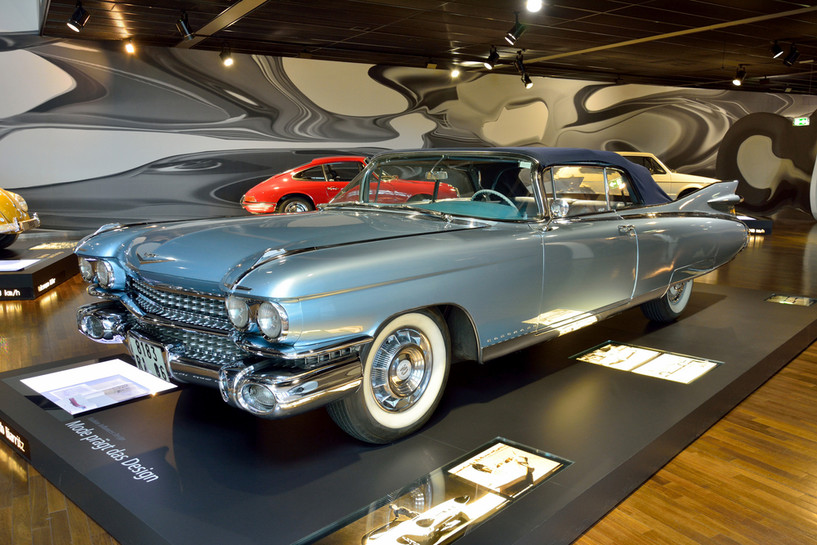If you're considering the purchase of your very first classic car for any purpose, whether it's pure ownership, car shows or any other reasoning, you're preparing to enter one of the most unique and enjoyable realms of in the automotive world. You're also going to be exposed to some concepts and realities that are very different from most other cars you've dealt with in your life, and being prepared for this is important.
At Andersen Restoration Parts, we assist classic car owners with numerous needs they may have in the restoration realm, offering everything from suspension kits to control arms and many other components. We also offer simple expertise and tips to many clients, including some who are just considering their entry into this world. What are some of the most important concepts to be aware of as you enter the classic car arena? Here are a few.
Different Maintenance and Storage Needs
One of the first things you'll discover when you own your first classic car is how different the maintenance and storage requirements are from a typical, every day car. You can't just park your classic in the driveway or garage and leave it out in the elements – certain precautions must be taken to ensure that your vehicle is properly protected.
For instance, if you live in an area with snow and ice, you'll need to take steps to prevent rust. This may include storing your car in a heated garage during the winter months, or taking it out and driving it on a regular basis to keep moisture from seeping in and damaging the paint or other components.
You'll also need to be more careful when washing and waxing your classic car, as some harsh chemicals can damage the paint. In general, you'll want to avoid automatic car washes, as they may be too harsh for a classic car's finish.
It's also important to note that classic cars often require more frequent maintenance than a newer vehicle. This is due to the fact that they may have more wear and tear on components, as well as outdated technology that requires more frequent attention.
Different Driving Experience
Another thing you'll quickly realize is that classic cars often offer a very different driving experience than what you're used to. This is due in large part to the fact that they often have much less power than a modern car, as well as less creature comforts.
For instance, you may find that your classic car doesn't have power steering or power brakes, which can take some getting used to. You'll also likely find that the suspension is much stiffer, and the ride may be rougher overall.
Now, many classic car owners enter this area specifically because they want to make upgrades to some of these areas. Using one of our suspension kits to upgrade your classic car's suspension, for instance, can make the ride much smoother and more comfortable.
However, it's important to be aware of the fact that classic cars often offer a very different driving experience than what you're used to, and this should be taken into consideration before making your purchase.
State Regulations
Another key element to be considering is the regulations that some states have when it comes to classic car ownership, testing and driving. For example, many states require owners of any car manufactured before a certain year to have regular emissions tests done -- even if the vehicle is rarely driven.
In some cases, these tests can be very expensive, and may even require significant repairs to the vehicle in order to pass. As such, it's important to be aware of the regulations in your state before purchasing a classic car, as this could have a significant impact on your ownership experience.
In other situations, your state may impose limits on how many miles you can drive your classic car within a year. This is often because classic cars utilize older fuel-efficiency technologies that may not meet modern standards.
As such, you're planning on using your classic car as a daily driver, it's important to be of any mileage limitations in your state before making your purchase.
Different Insurance Needs
As you may have already guessed while reading to this point, classic cars also often come with different insurance needs than your typical, every day car. For instance, many classic car insurers will only cover you for a certain number of miles driven per year -- usually between 1,000 and 2,500.
This is because they understand that most classic car owners don't use their vehicles as daily drivers, and as such the risk of an accident is much lower. However, if you do plan on driving your classic car frequently, you may need to look into a different insurance policy that will cover you for more miles driven.
Additionally, many classic cars are only insured for their actual cash value, as opposed to their replacement cost. This means that if your vehicle is totaled in an accident, you'll only receive the current market value of the car -- which may be significantly less than what you paid for it.
This is something to keep in mind when purchasing a classic car, as you'll want to make sure you have the proper insurance coverage in place to protect your investment.
For more on what to know before wading into the classic car ownership pool, or to learn about any of our classic car restoration or upgrade parts, speak to the experts at Andersen Restoration Parts today.

